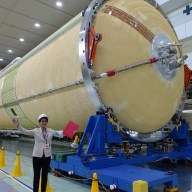Ah, downtown on Canada Day … so many people out enjoying the various celebrations, revelry and, of course, the marvellous fireworks display. And after the fireworks comes another downtown Canada Day tradition — gridlock on every street!
It’s tempting for me to blame ETS here and definitely part of the problem lies with it; should transit have been operating on a bare-bones Sunday schedule throughout the day? Probably not. ETS would be wise to start running a similar service on Canada Day to what it runs on New Year’s Eve — free of charge with bus service until 3:30 a.m. — to help encourage more ridership and to ensure that revellers are able to get home safely well into the night.
But all that aside and in spite of their enormous shortcomings, I still have to defend ETS here — despite not delivering a service that enticed people to take transit, ETS did as good a job as could be expected in clearing out the thousands of people from the downtown core. There were dozens of buses lined up at the Government Centre Transit Centre and the LRT was running at peak frequencies to help clear out the crowds.
So what’s my beef? At the risk of being unpopular and sounding preachy: You.
OK, well maybe not you. Maybe you walked, biked or took transit and, like myself, chuckled (a little sadistically) as you walked past block after block of gridlocked cars. But where my issue really lies is with those of you who drove downtown by the thousands to help create the ensuing mess.
We need to start being more accountable for our own roles in creating a sustainable city — gridlock, traffic jams and pollution don’t just happen on their own. They happen because we as individuals make the choice not to take transit or to rely on some other more sustainable form of transportation and instead decide to hop in private vehicles.
And until we start deciding to rely on transit and create a demand for better service and an overall better system, ETS will continue to be able to justify its lack of service because the demand simply is not there.
















